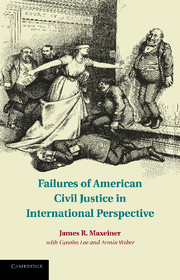Book contents
3 - Lawyers and Legal Systems
Access to Justice
Published online by Cambridge University Press: 07 September 2011
Summary
Deciding to bring a lawsuit is a difficult decision. One should make every effort to avoid going to court. Even someone who “wins” a lawsuit, as measured by legal outcome, may lose more in time, energy, and damaged personal relations than the victory is worth. In all three of our legal systems lawyers advise clients: Sue only if a lawsuit cannot be avoided.
Mary Roh has reached that point. She has decided to sue. Most likely, that means she needs to find a lawyer. Although a lay person might present a small case to a court without being represented by a lawyer, in a civil case of consequence, such as we have here, a lawyer is a practical necessity; in Germany, it is a legal requirement. In this chapter we consider when one needs a lawyer and how one goes about finding and engaging one. We then consider the legal systems within which they operate.
Even before Roh decides to sue, she may find a lawyer helpful to negotiate a settlement. Ordinarily parties try to settle disputes without suing. Introducing the right lawyer may make John Doh, Jr. realize that Roh is serious about the dispute and is thinking about suing. On the other hand, introducing the wrong lawyer could undermine settlement. Roh will decide whether and when to use a lawyer based on convenience, cost, and other personal considerations.
- Type
- Chapter
- Information
- Publisher: Cambridge University PressPrint publication year: 2011



